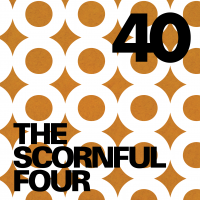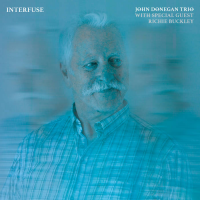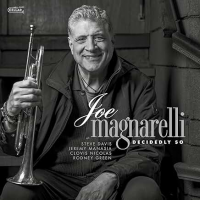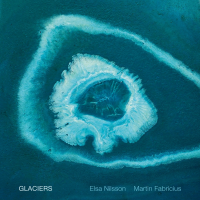Home » Jazz Articles » Album Review » Ernesto Cervini: Tetrahedron
Ernesto Cervini: Tetrahedron
...the act of treating poetry like a difficult activity one needs to master can easily perpetrate ... mistaken, and pervasive, ideas about poetry that make it hard to read in the first place. Like classical music, poetry has an unfortunate reputation for requiring special training and education to appreciate....
This same reasoning applies to jazz, as well, and again could not be further from the truth. To enjoy poetry or music, one needs only be able to read or listen, respectively. There are no other prerequisites. Zapruder goes on to sharpen the point:
The art of reading poetry [or, listening to music] does not begin with thinking about other cultural products, or historical moments, of great philosophies. It begins with reading the words of the poem [or listening to the notes of the music], which sounds very simple, and is, except that it quickly becomes interesting.
If poetry, and classical and jazz music required something special for appreciation, many fewer people would appreciate them than do. It's an empirical argument, but an effective one.
A recording worthy of considering in this paradigm, as well as extending it, is drummer Ernesto Cervini's Tetrahedron. A full listen reveals a music at once free spirited and precisely hewn. The instrumentation is a quartet, with guitar as harmony instrument. The compositions, a mixture of five originals and three standards provide for a sweeping look at the leader's (drummer Ernesto Cervini) performance dream-thought. There is an integrating paradigm to all of the pieces on Tetrahedron. It is an admixture of freely imagined music coalescing into cogent lines of melody and rhythm of differing complexities before disintegrating back into a new imagined level of entropy, not unlike a flock of birds scattering and then melding into form. The quartet may not be simply dismissed as "not coloring within the lines" because the song arrangements are so precise, including dramatic starts and stops.
A perfect example is the opening Romberg/Hammerstein chestnut, "Softly, As In A Morning Sunrise." The song is introduced with Rich Brown's undulating electric bass running through curiously strange changes: slightly dissonant before revealing a complex figure overwhich Cervini, guitarist Nir Felder and alto saxophonist Luis Deniz enter, dancing to the modern equivalent of the fractured countraputal interplay of traditional jazz that continues to building dramatically until the 3:39 mark where the performance resolves into exactly on chorus of the identifiable melody. Exactly, because once that chorus is over, so is the song, tightly, at 4:45.
Cervini is an orchestral drummer, filling space and time with ferocious cymbal play and judiciously dropped snare and bass drum bombs. Bassist Brown's "Forward Motion" has Cervini keeping time on the ride cymbal while scoring points elsewhere on his kit: determined and deliberate drum composition and support. Cervini's "trading eights" is a bombastic revelation, as noisy as it is intelligent. Unison play between Felder and Deniz reminds us this is a carefully curated piece of music, making the listening that much more thrilling, right up to the abrupt and dramatic coda. Vince Mendoza's "Angelicus" is a daydream, given a lengthy abstract introduction by Felder and then shared with Deniz. Soulful and introverted, the quartet transforms the song into an impressionistic pastoral.
"Boo Radley" is a nervous exposition of tightly controlled time and rhythm requiring perfect attention from the instruments. Deniz and Cervini solo, with the drummer turning in a solid wall of percussive sound the listener could lean against. Brown is relentless in this time keeping, propelling the piece ruthlessly. This is the true character of Cervini's compositions. They are assertive statements of fact that develop and evolve as they are performed. The quartet operates as an empathic unit with each member in tune with the others. While pushing the boundaries of accessibility and listenability, Cervini produces a gem of ensemble performance.
Track Listing
Softly, As In A Morning Sunrise; Forward Motion; Angelicus; Boo Radley; Stro; Summit Song; Wandering; The Sneaky Two.
Personnel
Album information
Title: Tetrahedron | Year Released: 2020 | Record Label: Anzic Records
Tags
PREVIOUS / NEXT
Support All About Jazz
 All About Jazz has been a pillar of jazz since 1995, championing it as an art form and, more importantly, supporting the musicians who make it. Our enduring commitment has made "AAJ" one of the most culturally important websites of its kind, read by hundreds of thousands of fans, musicians and industry figures every month.
All About Jazz has been a pillar of jazz since 1995, championing it as an art form and, more importantly, supporting the musicians who make it. Our enduring commitment has made "AAJ" one of the most culturally important websites of its kind, read by hundreds of thousands of fans, musicians and industry figures every month.



























